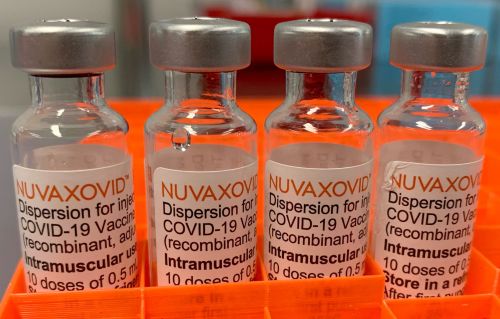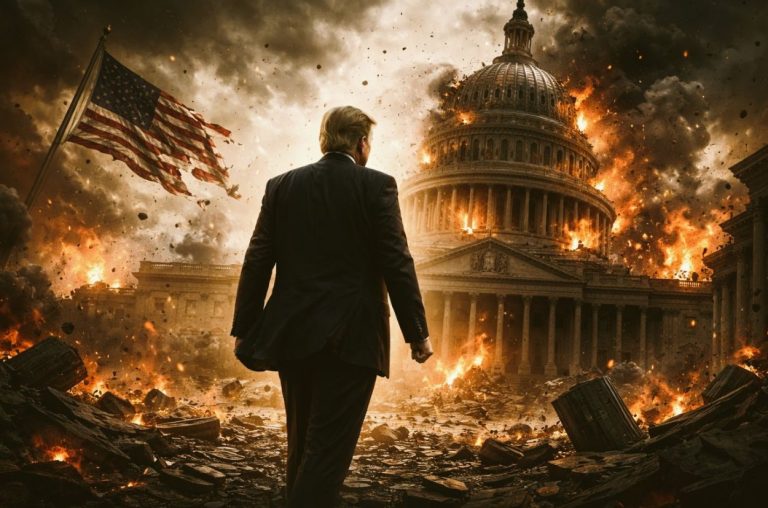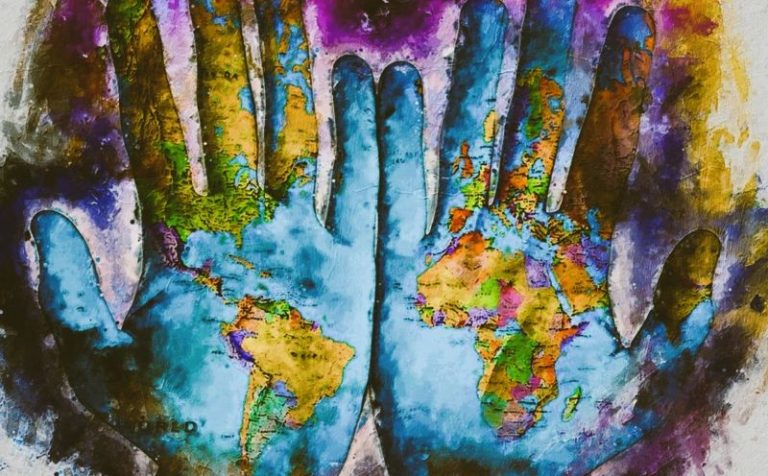

By narrowing eligibility, softening guidance, and shifting responsibility onto patients, the agency has turned public health into a test of privilege and geography.

By Matthew A. McIntosh
Public Historian
Brewminate
Introduction
The Centers for Disease Control and Prevention (CDC) under Robert F. Kennedy, Jr., has taken a sharp turn, narrowing who can receive updated COVID vaccines and softening its own guidance. What was once a universal recommendation has been reduced to a patchwork of age restrictions and carve-outs for people with certain chronic conditions. Millions of younger, otherwise healthy Americans are now told to “consult their clinician” before seeking a shot — a bureaucratic hurdle that sounds neutral on paper but in practice limits access and spreads confusion.
Imagine being 40, worried about an immunocompromised spouse at home, walking into a pharmacy only to be told you’re no longer eligible under federal guidance. The shot is still there, behind the counter. You have insurance. You want it. But the rules have changed, and the burden shifts to you to prove your risk or go without and expose your compromised spouse because you can’t get protection for yourself. This is the new reality shaped by an administration that once claimed it was defending freedom.
And here’s the bitter irony: the same voices that railed against mandates and masks in the name of “choice” are largely silent now that choice is being taken away. A policy meant to restore “trust” is instead sowing distrust and raising the risk for those who still want the protection. Conspiracy theories may have won the culture war, but the public is left paying the price.
What Changed Under RFK Jr.
The shift in vaccine policy isn’t just a subtle tweak; it’s a full reversal of how the CDC once approached public health. For years, the agency recommended COVID shots for virtually everyone six months and older, emphasizing wide coverage as the best defense against community spread. That clarity is now gone.
Under Kennedy’s leadership, the CDC has reshaped its Advisory Committee on Immunization Practices, replacing longtime experts with voices more aligned to his skepticism. The result: the committee voted to narrow eligibility for updated COVID vaccines, making them recommended only for people 65 and older or those with certain chronic conditions. For younger, otherwise healthy adults, the guidance now falls into the gray zone of “shared clinical decision-making”; in plain terms, you’ll have to ask your doctor and hope they sign off.
The CDC has even backed away from its previous stance on children and pregnant women. Where earlier guidance stressed the importance of protecting both, the new message is muted and conditional, signaling that entire groups who were once encouraged to vaccinate are now quietly being told they may not need it.
Defenders argue this is about restoring public trust, presenting the new policy as “tailored” and “evidence-based.” Kennedy himself framed the overhaul as a way to rebuild confidence in vaccines, claiming broad mandates fueled public backlash. But to many public health experts, this is a dangerous game of appeasement, narrowing access at the very moment new variants are spreading and vaccine coverage is already declining.
Why This Is a Problem
On paper, the policy sounds reasonable: prioritize the elderly, the sick, and those most at risk. But in practice, it strips away access for millions who still want protection and builds new barriers where none existed. Telling healthy adults under 65 to get a doctor’s note before vaccination doesn’t empower choice; it creates hurdles that many people, especially those without easy access to healthcare, will never clear. In a country where tens of millions lack a regular physician, that’s effectively a denial.
Public health experts warn that this rollback will have consequences. The Harvard School of Public Health cautioned that limiting eligibility could raise risks for younger groups, particularly as immunity wanes and new variants circulate. It also muddies the message: for years, people were told vaccination was the safest route. Now, the CDC’s retreat sends a signal that the shots are unnecessary (or worse, unsafe) for broad populations. That’s a recipe for more distrust, not less.
And then there’s the hypocrisy. The same politicians and pundits who once roared about “freedom” and “choice” when vaccines were widely available are quiet now that choice is being rolled back. Where are the angry op-eds demanding the right of a 40-year-old to walk into a pharmacy and get a shot without begging for permission? The silence speaks volumes. “Choice” was never really about choice; it was about undermining public health.
Equity is another casualty. Wealthier Americans with personal physicians and concierge care will still get access. It’s the working-class parents, the uninsured, and those in rural communities who will be left with no realistic option. By narrowing eligibility, the CDC has guaranteed that privilege, not science, will determine who gets vaccinated.
Counterarguments and Reactions
Kennedy and his allies insist this policy is about science and trust. They argue that in low-risk groups, the benefit of COVID vaccination is less clear, and that narrowing recommendations makes the CDC look more measured. The shift, they say, is a way to “rebuild confidence in vaccines” by stopping what they frame as “overreach.” In their telling, limiting access is supposed to calm fears and show the government isn’t forcing medicine on anyone.
But the backlash has been fierce. Public health experts warn that the policy ignores real-world dynamics, where young adults still transmit the virus and face risks of long COVID. The Harvard School of Public Health said outright that the changes could raise infection rates and worsen inequities. Doctors have also criticized the so-called “shared decision-making” requirement, pointing out that in practice it creates confusion for patients and extra burdens for already overwhelmed clinics.
Some states are openly rejecting the new guidance. California, Oregon, and Washington announced they will continue recommending COVID shots for everyone six months and older, directly breaking with federal policy. Michigan’s governor even issued an executive order guaranteeing broad vaccine access in her state. The result is a patchwork America where your ability to get a shot may depend less on science than on what your governor thinks of Kennedy.
Even some former skeptics are uneasy. Conspiracy-tinged critics who once framed vaccines as dangerous government overreach are now watching the CDC endorse their talking points. For them, it’s validation. For everyone else, it’s a dangerous undermining of public health, wrapped in the language of “choice” but carried out as restriction.
The Choice Argument: Where It Falls Apart
When vaccines were widely available, the loudest critics framed their opposition as a defense of freedom. “Choice” became the rallying cry against mandates, masks, and public health campaigns. The idea was simple: government shouldn’t decide for you.
But now, with the CDC narrowing access under Kennedy, that principle has all but vanished. Millions who still want the shot are being told they don’t qualify, or that they’ll need to plead their case to a doctor. Where are the furious declarations about personal liberty now? Where are the viral videos insisting people should be free to decide for themselves?
The silence is deafening. The truth is, “choice” was never really the point. It was a political cudgel, a way to undermine institutions, stir anger, and weaken trust in public health. If freedom was the value, then limiting access to vaccines would spark outrage. Instead, many of the same voices who demanded liberty are applauding restrictions.
This is more than hypocrisy; it’s a dangerous double standard. When mandates were on the table, the cry was “government tyranny.” Now that the government is withholding access, the same crowd calls it “common sense.” It reveals what was always hiding under the surface: the freedom they defended wasn’t your freedom to choose. It was their freedom to obstruct.
What This Means Going Forward
The consequences of this policy won’t be abstract. Fewer people will get vaccinated, and the virus will have more room to spread. Uptake has already been sliding for years; now, with eligibility narrowed and messaging weakened, it’s almost certain to fall further. Public health experts warn that this could mean higher case counts, more long COVID, and a heavier burden on hospitals when the next wave arrives.
Trust in public health is another casualty. For years, officials told Americans the vaccine was the safest way to protect themselves and their communities. Now the CDC’s reversal sends a muddled message: if you’re under 65 and healthy, maybe you don’t need it after all. That inconsistency doesn’t restore confidence; it corrodes it. Once trust is broken, it’s hard to rebuild, and the next time a serious outbreak hits, the cost could be catastrophic.
The policy also fractures the country further. With states breaking away and guaranteeing access independently, Americans now face a patchwork system where your right to a vaccine depends less on science than on your ZIP code. In one state, you may be turned away at the pharmacy. In another, you may still be encouraged to get the shot. The virus, of course, doesn’t care about state lines.
What Kennedy calls “restoring trust” is already sowing division and confusion. The end result is predictable: fewer vaccinations, higher risks, and a public left to navigate a broken system on their own.
Conclusion
The CDC’s new vaccine policy under RFK Jr. isn’t about science; it’s about politics. By narrowing eligibility, softening guidance, and shifting responsibility onto patients, the agency has turned public health into a test of privilege and geography. Those with resources will still find a way to get vaccinated. Everyone else will be left exposed.
The irony is brutal. The same movement that screamed about freedom and choice when vaccines were widely available is now applauding a policy that takes choice away. That’s not liberty. That’s hypocrisy, and it comes at the expense of real people who still want the protection a shot can provide.
History will not judge this kindly. Years from now, the headlines won’t read “trust restored.” They’ll tell the story of how politics overrode science, how fear eclipsed reason, and how a preventable risk was allowed to grow because those in power chose ideology over access. And the question will linger: how many lives were lost so one man could score points in a culture war?
Originally published by Brewminate, 09.24.2025, under the terms of a Creative Commons Attribution-NonCommercial-NoDerivatives 4.0 International license.


